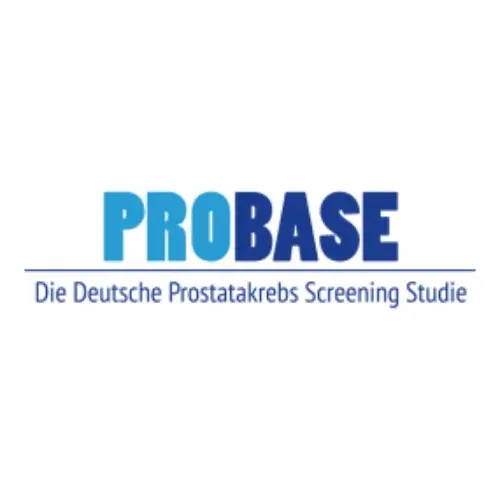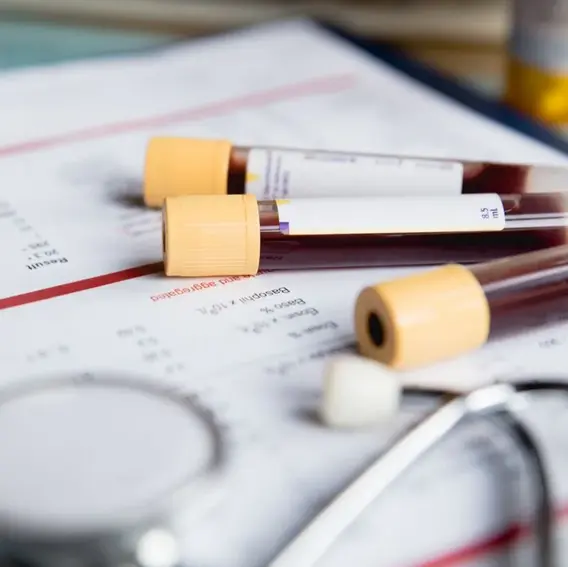In the Prevention Outpatient Clinic at the National Cancer Prevention Center, we develop and test new approaches and methods for cancer prevention and early cancer detection in studies together with citizens. We also collect long-term cancer risk data and biosamples for cancer research in order to gain new insights into the development, prevention and early detection of cancer and to improve existing programs. For example, we record genetic risk profiles, test new biomarkers and develop and test app-based early detection methods. We are also setting up research studios - such as the Viessmann Nutrition Workshop and the Hopp Movement Laboratory. Here, we use nutrition and exercise studies to investigate the influence of lifestyle on cancer risk and develop tools that promote a health-conscious lifestyle.
Note: The studies follow fixed protocols that define clear inclusion and exclusion criteria for participation. These protocols also describe how participants are included in the study. Further information on this and the relevant contact persons can be found on the websites of the individual studies.
PROBASE study

The PROBASE study (Risk-adapted prostate cancer early detection study based on a "baseline" PSA value in young men), which is funded by German Cancer Aid, is being conducted by the "Personalized Early Detection of Prostate Cancer" and "Cancer Epidemiology" departments at the DKFZ. The study is based on the observation that the baseline value of the prostate-specific antigen (PSA) at the age of 45 to 50 years has a high predictive power for whether a man will later develop prostate cancer.
The main aim of the study is to develop a prostate cancer screening strategy that makes it possible to detect aggressive prostate carcinomas requiring treatment at an early stage using a baseline PSA value. At the same time, men are to be protected from stressful false-positive findings, overdiagnosis and overtreatment.
The study participants are randomly selected via the residents' registration offices and invited in person. Independent registration for participation in the study is not possible.
Heidelberg Study Center
Berliner Straße 45, 1st floor in the premises of the Prevention Outpatient Clinic
69120 Heidelberg
Phone: +49 6221 42-5488
Email: probase(at)med.uni-heidelberg.de
Further information can be found on the PROBASE study page.
LION RCT study

The LION RCT study (Randomized Controlled Exercise Intervention Study) is being conducted as part of the EU-funded PREFERABLE II project in cooperation between the "Exercise, Prevention Research and Cancer" department at the DKFZ and the "Oncological Sports and Exercise Therapy" working group at the National Center for Tumor Diseases (NCT) in Heidelberg. It investigates how well an online training program is accepted by cancer patients and to what extent it can alleviate stressful symptoms after cancer treatment has been completed.
The aim of the study is to test a live and online exercise intervention to mitigate cancer and therapy-related side effects.
1. You completed your cancer treatment (including chemotherapy) three to twelve months ago.
2. You have no distant metastases.
3. You suffer from stressful symptoms such as fatigue, anxiety, depression, polyneuropathy or low physical performance.
4. You do not do more than 2.5 hours of sport per week.
Further information and contact details can be found on the LION RCT study page.
4-IN-THE-LUNG-RUN study

A nationwide lung cancer screening program for high-risk groups is to be introduced in Germany in the near future. This program is being prepared by the 4-IN-THE-LUNG-RUN study. The starting point is the finding of international studies that regular radiological examinations of the lungs using low-dose multi-slice computed tomography (MSCT) can significantly reduce lung cancer mortality in smokers. The 4-IN-THE-LUNG-RUN study is now investigating the optimal interval between screening rounds. Germany is participating in this study with two sites. One of them is located at the DKFZ in Heidelberg and is headed by the "Cancer Epidemiology" department.
Currently, most guidelines and pilot studies recommend annual screening intervals for the early detection of lung cancer. However, there are concerns regarding the increased radiation exposure and possible overloading of radiology practices. The 4-IN-THE-LUNG-RUN study is now investigating whether a low-dose MSCT every two years is sufficient to detect lung cancer at an early stage.
The follow-up examinations of the 3,000 participants are currently underway. New participants are no longer being accepted.
German Cancer Research Center (DKFZ)
4-IN-THE-LUNG-RUN Study Office
Phone: +49 6221 42-2236
E-mail: lungenscreening(at)dkfz.de
Further information can be found on the 4-IN-THE-LUNG-RUN study page (only in German).
